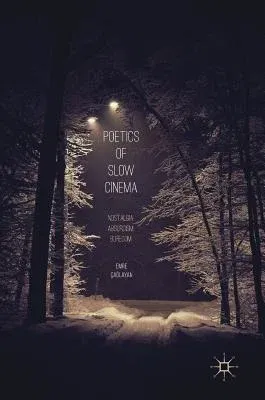Emre Çağlayan
(Author)Poetics of Slow Cinema: Nostalgia, Absurdism, Boredom (2018)Hardcover - 2018, 23 October 2018

Qty
1
Turbo
Ships in 2 - 3 days
In Stock
Free Delivery
Cash on Delivery
15 Days
Free Returns
Secure Checkout

Print Length
244 pages
Language
English
Publisher
Palgrave MacMillan
Date Published
23 Oct 2018
ISBN-10
3319968718
ISBN-13
9783319968711
Description
Product Details
Author:
Book Edition:
2018
Book Format:
Hardcover
Country of Origin:
NL
Date Published:
23 October 2018
Dimensions:
21.01 x
14.81 x
2.24 cm
ISBN-10:
3319968718
ISBN-13:
9783319968711
Language:
English
Location:
Cham
Pages:
244
Publisher:
Weight:
585.13 gm